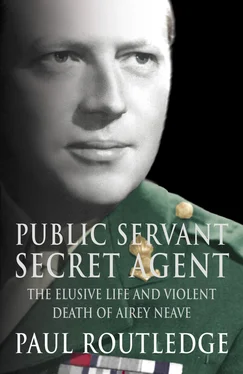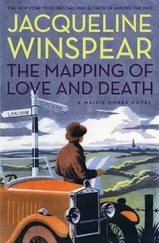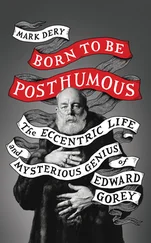The Britain of the early 1970s, with its crippling strikes, inflation and civil war in all but name in Ulster, called forth men like him on a mission to save the country they loved. At least, that was the way they saw it. From the recesses of the security services, from the upper reaches of the City, from London’s clubland, and from the right of the Conservative Party, came volunteers eager to fight the good fight, Neave among them. But if his greatest contribution to politics was to mastermind the coup that dethroned Edward Heath (employing the ‘psy-ops’ skills he had acquired in his intelligence years) and brought the leadership of the Tory Party to Margaret Thatcher, it did not rob him of a taste for the covert. Soon after Thatcher took over, amid nervousness in the City as inflation soared to 25 per cent and with the pound at little more than 70 per cent of its 1971 value, Neave attended a reception of Tory MPs given by George Kennedy Young, by now the ex-deputy director of MI6. General Walter Walker, former Commander-in-Chief of NATO’s Northern Command, was also there. In 1973, at the height of industrial unrest, he had set up Civil Assistance, a quasi-private army of ‘apprehensive patriots’ to give aid to the authorities.
It was never called upon to carry out this function but the theme did not lose its attractions. Neave became involved in Tory Action, a right-wing pressure group within the party, and the National Association for Freedom (NAFF), set up in late 1975 to counter ‘Marxist subversion’. This organisation had more success than Civil Assistance, notably in the legal harrying of strikers. However, the most intriguing – and sinister – of Neave’s operations came in 1976 when he became involved with Colin Wallace, an army intelligence officer working for Army Information Policy in Northern Ireland. Operation Clockwork Orange, initially created to undermine republican terrorists through a disinformation machine to the media, would spread its tentacles into the higher echelons of British politics to probe and exploit the weaknesses of key figures. Aware of Wallace’s MI5 background and his disinformation programme, Neave would maintain his contacts with him when he was appointed Shadow Northern Ireland Secretary.
Neave’s connections with the secret state, past and present, gave rise to speculation that he could also be given the task of liaising between the government and the intelligence services – a job similar to that undertaken by Colonel George Wigg, Paymaster-General in Harold Wilson’s government. 10 Wigg, known in Parliament as ‘the Bloodhound’, certainly admired Neave, describing him as ‘a smart operator who learned from me’. Plainly, the spooks’ mutual admiration society crossed boundaries. It also influenced intelligence policy. Neave’s high opinion of Maurice Oldfield was almost certainly instrumental in Thatcher’s decision to appoint the former head of MI6 as Coordinator of Security and Intelligence in Northern Ireland in October 1979. Oldfield, in charge of MI6 from 1965 to 1977, had survived a bomb attack on his London flat in 1975.
In parliament, Neave gave full support to Roy Mason, the hard-line Labour Ulster Secretary, urging him to go further and ‘pick off the gangsters’ of the IRA. Neave’s policy for Ireland, insofar as it was understood in London and Dublin, was a twin-track strategy of devolving some powers to local councils in Ulster, coupled with the toughest possible military crackdown on republican terrorism. He had no time for power-sharing between nationalists and Unionists, arguing that it had failed and should not be tried again. It was the agenda of a soldier rather than a politician who understood Ireland and the Irish. Nonetheless, his blood-curdling warnings of the wrath that was to come when the Conservatives took office made republicans sit up and take notice of him. They feared him. He believed he had a special insight into the guerrilla mind. ‘I know how the IRA should be dealt with because I was a terrorist myself once,’ he told an Irish journalist. 11
Neave would have had the British army at his disposal. Indeed, he still thought of himself as ‘one of them’. He believed that specially trained soldiers should be used to ‘get the godfathers of the IRA’ and rejected any suggestion of amnesty for convicted terrorists as part of a peace deal. It was quite clear that the price of liberty in Ulster could involve the annihilation of those engaged in violence for political ends. This Cromwellian solution was what Neave meant by liberty. The policy was to bring about his own death before it could be implemented.
Yet, for all the convulsions created by Neave’s death, the secret state has left his assassination in a limbo of oblivion. Apart from an (officially) abortive police enquiry, which also involved the security services, there has been no attempt to investigate Neave’s life and death. Sources as diverse as Enoch Powell and ex-collaborators with Neave believe that the authorities themselves may have had a hand in the bloody affair. Even his own daughter Marigold believes the facts have been suppressed. ‘I think there was a cover-up,’ she said across her kitchen table in deepest Worcestershire one cold January morning. ‘They only say “he died a soldier’s death”.’ 12
Airey Neave was born at 24 De Vere Gardens, Knightsbridge, a stone’s throw from Kensington Palace and just down the road from the Royal Albert Hall, on 23 January 1916. His father, Sheffield Airey Neave, continued an eccentric family tradition and burdened his son with family surnames, adding to his own that of his wife Dorothy Middleton. Thus, Neave was christened Airey Middleton Sheffield. As he grew up, Airey began to hate his whimsical collection of names, so much so that he rechristened himself Anthony during the war years and only reverted to Airey when he entered public life.
Airey must have quickly appreciated that his family was steeped in history. Of Flemish – Norman origin, the Neaves came to England in the wake of William the Conqueror and settled in Norfolk about 200 years before the earliest recorded member of the family, Robert le Neve, who lived in Tivetshall, Norfolk, in 1399. His forebears lived in villages around Norwich where they became landowners and sheep farmers. As they prospered in the wool trade, some le Neves struck out further afield, to Kent and Scotland, but they stayed chiefly in East Anglia, gaining social distinction. Sir William le Neve, a native of Norfolk, was Clarenceux King-of-Arms at the College of Heralds in London in 1660.
The failure of the wool trade in the mid-seventeenth century drove some enterprising members of the family to seek their fortunes in London, with mixed results. One generation was wiped out by the Black Death in the 1660s (the victims are reputedly buried under a church in Threadneedle Street) but Richard Neave, who lived from 1666 to 1741, fared better, establishing a prosperous business in London, with offices in the Minories. He made most of his wealth from the manufacture of soap, a new and very fashionable product for the period. He bought land east of London outside the city limits, where his sons began to establish what would become London docks. His business also expanded overseas, with estates in the West Indies, and he put his accumulated resources into his own bank in the City.
The business further prospered through judicious marriages and Richard’s grandson, bearing the same name, bought the Dagnam estate in Essex, so beginning the family’s long connection with the county which remains to this day. His grandson became Governor of the Bank of England in 1780 and a baronet in 1795. The family crest, a French fleur-de-lis, with a single lily growing out of a crown, long predates the adoption of the Neave motto, Sola Proba Quae Honesta , which translates literally as ‘Right Things Only Are Honourable’. Speculation about possible royal connections linked to the appearance of a crown on the crest, admits Airey’s cousin Julius Neave, has given rise to ‘some fanciful but quite unsubstantiated theories’ as to the family’s origins.
Читать дальше












